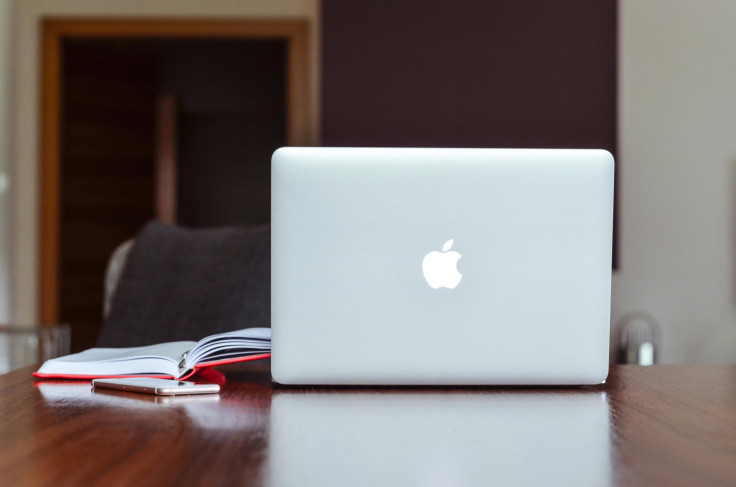Outrage as Apple Shockingly Brands 2017 MacBook Pro and 2015 Air 'Obsolete' — Even If They Still Work
Apple's decision highlights the tech industry's fast-paced obsolescence cycle

An Apple fan's worst nightmare has come true after the tech giant branded several of its laptops 'obsolete', even if they're still in working condition. This shocking move has created an uproar amongst loyalists, who claim the tech behemoth is forcing them to upgrade.
Despite being among the most popular gadgets of the 2010s, Apple has categorised three more of its products as 'obsolete' — a move that comes barely a decade after their initial release.
A 'Right to Repair'
Should anything go wrong with these devices, their owners will find themselves without any assistance, as the tech giant no longer provides hardware support for products it has deemed obsolete.
All Apple devices follow a predictable path through three stages — current, vintage and obsolete— during their relatively brief lifespan. Even a future model, like the forthcoming iPhone 17, is destined to one day join the obsolete list.
This trend highlights the rapid pace of the gadget industry, which often prompts consumers to spend money on new devices repeatedly. However, Apple and other technology companies have received backlash for their role in worsening the electronic waste issue.
From Hype to the Scrap Heap
According to MacRumors, one of the products Apple has just added to its obsolete list is the 11-inch MacBook Air, a device that is now more than a decade old.
THE END OF AN ERA! ❌
— Brian MacDuff (@itstheBMAC) September 2, 2025
The 2010 11-inch MacBook Air is now officially OBSOLETE. 🪦
The 11-inch MacBook Air originally launched in 2010, stopped being sold in 2015, and was officially discontinued in 2016. 🛑
Do you remember seeing the 11-inch MacBook Air for the first time? 🤩 pic.twitter.com/6PH4JjCgIb
With a starting price of $899/£749 when it was launched in March 2015, the device was praised for its sleek design, portability and long-lasting battery life. However, it was widely criticised for its 1,366 x 768 display, which was already considered a low resolution at the time, causing on-screen text and visuals to appear blurry.
A quick glance at the 11-inch MacBook Air reveals its age, as it conspicuously lacks the slim bezels found on modern Macs.
Also joining the obsolete list are two 2017 MacBook Pro models — the 13-inch and 15-inch versions — that had an original retail price of $1,499/£1,449 and $2,399/£2,349, respectively.
These devices were hailed as 'groundbreaking' by Apple at the time, which also described them as the 'thinnest and lightest MacBook Pro ever', featuring what was touted as its 'brightest and most colourful retina display yet.'
The premium versions of these laptops replaced the traditional function keys with a small, multi-touch OLED strip known as the Touch Bar.
The two MacBook Pro models, launched in June 2017, have been officially deemed obsolete less than eight years later. Its signature feature, the Touch Bar, was widely regarded as a gimmick and was ultimately discontinued in 2023.
A Lifecycle of Obsolescence
Apple classifies a product as 'obsolete' after it has been discontinued for over seven years. According to the company, this means the device no longer receives support and is ineligible for repairs at an Apple Store or any authorised third-party service.
In other words, if the product breaks, Apple has no obligation to repair it, effectively turning the device into little more than a relic from the past. According to Apple's website, the company ends all hardware support for obsolete products, meaning service providers are unable to order parts.
There is a small exception for Mac laptops, which may be eligible for an extended battery-only repair for up to a decade after they were last sold. However, this is contingent on the availability of components.
The 64GB and 256GB iPhone 8 Plus models have also been given 'vintage' status by Apple, a category for products more than five years old, which means receiving official repairs from the company is no longer guaranteed.
Launched in September 2017 with a starting price of $799/£596, the iPhone 8 Plus was distinguished by its rear glass panel, a 5.5-inch screen, and a dual 12-megapixel camera system.
The tech giant is gearing up to unveil its new flagship smartphone, the iPhone 17, which is expected to become obsolete in 2033 or 2034. In an announcement last week, the company revealed an invite for its 'awe dropping' event, where it will officially lift the curtain on the new device.
The Environmental Cost of Manufacturing
While Apple launches new devices to great excitement each year, an even larger number are quietly relegated to the technology scrap heap. This practice has drawn criticism from environmental campaigners, who argue that a lifespan of under a decade is unacceptable for technology that costs hundreds of pounds.
A 2020 report by Members of Parliament claimed that companies such as Apple and Amazon have been neglecting their environmental duties by contributing to the electronic waste crisis with the products they sell.
'Too many devices have a limited, and sometimes decreasing, lifespan and end up in bins, eventually going to landfill or incineration', said former Environment Audit Committee chair Philip Dunne.
Originally published on IBTimes UK





















